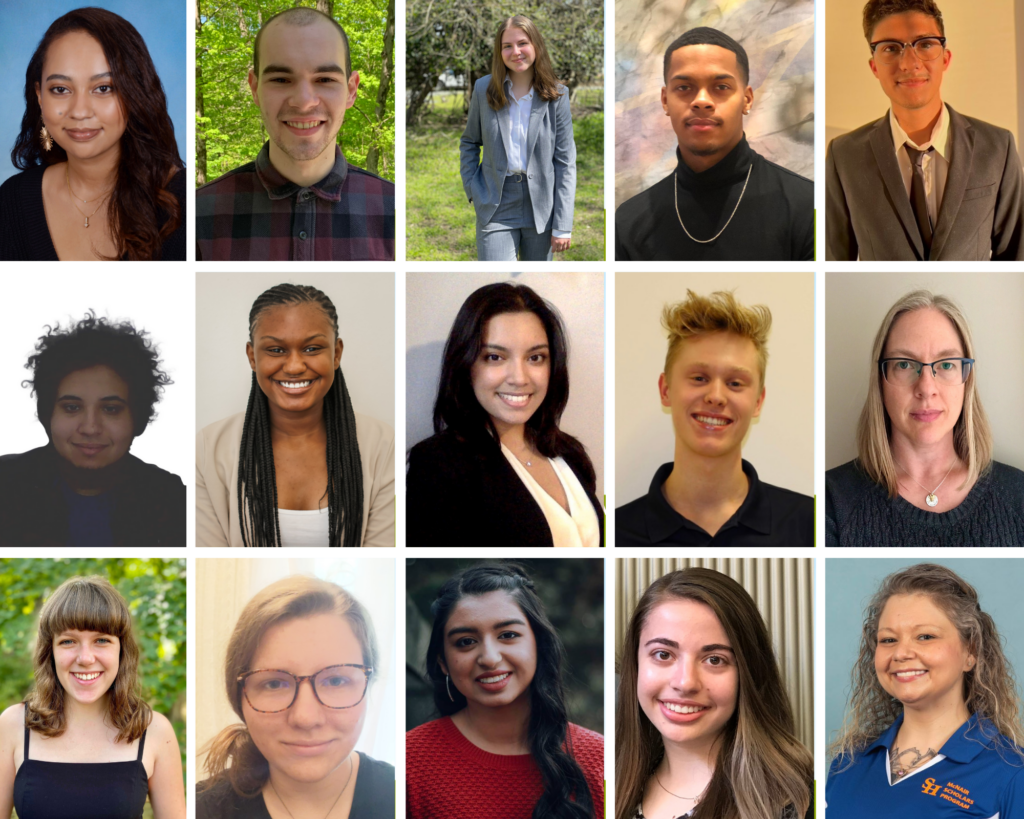The Victoria Finnerty Travel Award supports conference-attendance costs for undergraduate GSA members who are presenting research at the Annual Drosophila Research Conference. #Dros22 will be held in San Diego, CA and online from April 6–10, 2022.
Victoria Finnerty, who died in February 2011, was a long-time member of the Genetics Society of America and served the Drosophila community and the genetics community at large in many capacities. A wonderful geneticist, Vickie’s ground-breaking work as a graduate student used high-resolution recombination analysis to dissect gene structure. This set the stage for a 35-year career in which she excelled as a gifted teacher as well as research scientist. Vickie was also a wise and compassionate mentor and teacher for whom interactions with her students was a constant joy. She constantly sought new ways to engage undergraduates in their genetics courses and in research; this travel fellowship fund continues Vickie’s stellar example.

Saron Akalu, University of California, Berkeley
We characterize the timing and evolution of an apoptosis-inducing toxin gene’s horizontal transfer into an agriculturally destructive fruit fly lineage.
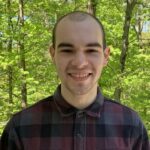
Paulo Belato, University of Connecticut
I investigate the changes of gene expression in a Drosophila melanogaster model system that carries B chromosomes.

Megan Butler, University of North Carolina at Chapel Hill
I study how an essential protein involved in human cancers might be recruited to its target locations via epigenetic (outside the DNA) changes.

Collin Louis, Grand Valley State University
My research is investigating whether expression of the Hdc (histidine decarboxylase) gene in specific regions can be regulated though the process of transcription initiation.

Gonzalo Nahim Morales Chaya, University of New Mexico
We explore the intrinsic mechanisms that regulate neuroblast identity through brain development.

Sherif Negm, University of Rochester
I study the evolutionary dynamics of complex satellite DNA.

Alani Perkin, Harris-Stowe State University
My research project in the Leal lab at Harris-Stowe State University is focused on understanding the mechanisms of pattern formation involved in the development of adult organs using the Drosophila imaginal eye disc as a simple model system.

Manisha Persaud, Rutgers University
My research investigates the features of the Drosophila oocyte-spindle that make it susceptible to segregation errors, specifically through the study of the Borealin protein in The Chromosome Passenger Complex.

Christopher Petit, Loyola University Chicago
I study the role of the protein CG4511 in the development of sperm (spermatogenesis) within the Drosophila melanogaster testis.
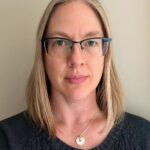
Heidi J. J. Pipkin, Bemidji State University
I study innovative high-resolution imaging method that creates standardized conditions facilitating the collection of reproducible, spatial, quantitative data from the eyes of D. melanogaster.
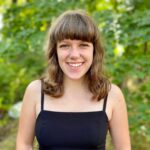
Caroline Pitton, Wesleyan University
My project uses RNA-Sequencing data to identify D. melanogaster genes that are significantly differentially expressed in response to the GeneSwitch GAL4 system.
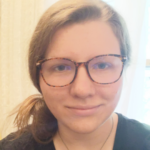
Caroline Pritchard, Lehigh University
I study functions of ribosomal proteins (components of the protein-making machinery found in all cells) and how the loss of specific ribosomal proteins perturbs normal developmental processes in the fruit fly.

Shanzeh Sayied, Brown University
I am researching ALKBH8, a gene associated with intellectual disability, and how it affects learning and memory in Drosophila.
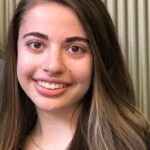
Joanatta Shapiro, Rutgers University
I am investigating the role of the ROD-ZW10-Zwilch complex in promoting accurate chromosome segregation during female Drosophila meiosis.
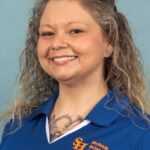
Sequioa Smith, Sam Houston State University
I discover and characterize new genes required for the fruit fly’s retinal development.

